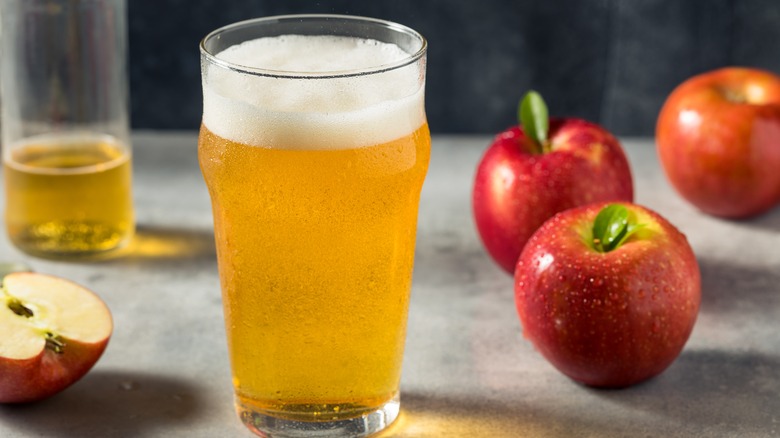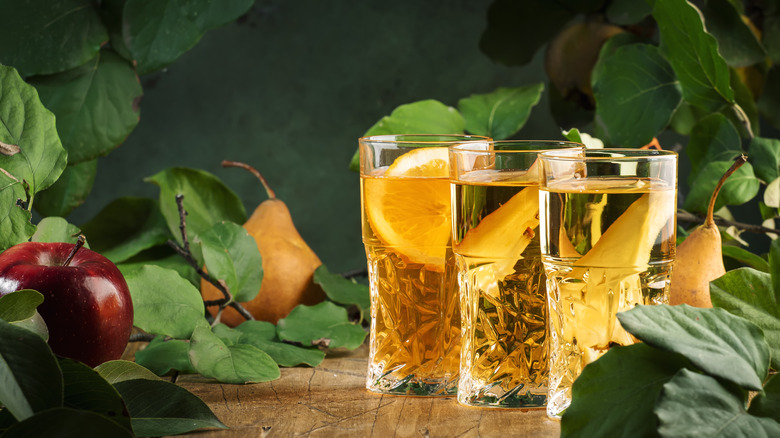The Best Hard Cider To Try For Beginners, According To An Expert
Venturing into new culinary territory is both risky and exciting. If you like the carbonation of beer and the fruitiness of wine, the odds that you'll like cider are high. Like beer and wine, ciders have a wide range of characteristics, so if you're overwhelmed by the choices, we reached out to cidermaker and co-founder of Brooklyn Cider House, Peter Yi, to provide you with the best hard cider to try.
In an interview with Tasting Table, Yi guides newcomers to ciders by comparing their taste and mouthfeel to wine. He likens the production of both alcoholic beverages, stating, "Yeasts convert apple fruit sugars to alcohol during fermentation, producing hard cider — just like wine is made with yeasts eating grape sugars." Since apples and grapes are both fruits that contribute sugar, flavor, and tannins to their respective alcoholic beverages, you can use your taste in wine to inform your selection of hard cider.
Wines tend to range from high-tannin and dry to sweet and fruity. Because of this, Yi says, "If you're used to dry wines, you will enjoy dry hard ciders." Fans of sweet fermented beverages will like "a fruitier style of hard cider." He chooses the middle ground for beginners by recommending Brooklyn Cider House's Kinda Dry cider, which he describes as: "An entry cider in our lineup — it is off-dry and has more fruit flavors."
More guidance on cider characteristics
For curious drinkers who aren't local to the five boroughs, Yi goes into detail about types of ciders and indicators of a good cider based on its label information. Cider apples, like wine grapes, are different from the apples you buy to eat. Yi says, "Cider apples have more tannins, acidity, and bitterness ... resulting in better body and more complex flavors of cider." Therefore, if you're looking for high-quality cider at your local grocery or liquor store, Yi explains, "Some good cider apples to look out for on a label include Dabinett, Kingston Black, Porter's Perfection, Ellis Bitter and Manchurian Crabapple."
That said, ciders can be elaborated from other fruits like pear, strawberries, blueberries, and stone fruits. Yi admits he's experimenting with different fruit combinations at Brooklyn Cider House. In addition to different fruits, ciders can be carbonated or non-carbonated, also known as sparkling and still.
The best way to get acquainted with ciders is a tasting because you can try a little bit of a wide variety of flavors, carbonation, and dryness. Even if you don't have a cider house nearby, you can create your own tasting party with friends by buying different kinds of cider. Yi opines, "You should try a dry sparkling, dry still, off-dry sparkling and off-dry still ciders, plus a semi-sweet one and a pet-nat or methode champenoise sparkling one."

